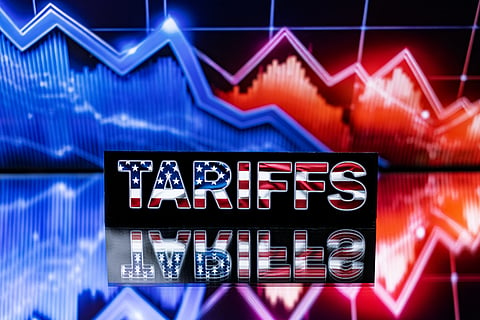
- NEWS
- the EDIT
- COMMENTARY
- BUSINESS
- LIFE
- SHOW
- ACTION
- GLOBAL GOALS
- SNAPS
- DYARYO TIRADA
- MORE

A growing international movement is targeting American-made goods as consumers in five countries — Canada, Mexico, France, Denmark, and Norway — boycott US products in response to former President Donald Trump’s sweeping global tariffs.
Originally aimed at China, Mexico, and Canada, the tariffs were later extended to include all steel and aluminum imports, sparking not just political retaliation, but a consumer-led rebellion on a global scale.
Canada, one of the US' closest allies, was among the first countries to experience the sting of Trump's tariffs. The response was swift and emotional. Canadian consumers began boycotting US goods, turning product labels upside down in stores and flocking to apps like Maple Scan, which help identify whether a brand is American-owned.
Canadian officials took political and economic action as well. Ontario Premier Doug Ford canceled a $100 million contract with Elon Musk’s Starlink and sported "Canada is not for sale" hats in protest. A national poll showed 85 percent of Canadians had already replaced or planned to replace American products.
The backlash even extended to liquor aisles. The Liquor Control Board of Ontario removed US-made spirits, a move that Jack Daniel’s parent company described as “worse than a tariff.” The US Travel Association warned that a 10 percent drop in Canadian tourism could result in $2.1 billion in lost spending and 14,000 job losses.
Mexico responded to Trump’s tariffs with strong policy countermeasures. The country kept tariffs on US steel and aluminum and rejected trade concessions outside the terms of the USMCA. On the consumer side, the public has increasingly turned to Mexican-made goods and services, reducing dependency on American imports.
In Europe, consumer resistance to US goods has taken hold in France, Denmark, and Norway, each reacting not only to Trump’s trade policies but also to broader geopolitical tensions involving the US.
In France, online movements like “Buy French and European” have encouraged the public to boycott American brands such as Coca-Cola, Starbucks, and tech platforms like Apple. The “Boycott USA” Facebook page has gained thousands of followers, reflecting growing frustration with US economic dominance and foreign policy.
In Denmark, tensions escalated after Trump suggested buying Greenland, sparking national outrage. The Danish Facebook group “Boycott goods from the US” now has more than 70,000 members. Leading retailer Salling Group began marking European-made goods with black stars to help shoppers avoid American products.
Norway joined the boycott with symbolic action from companies like Haltbakk Bunkers, which announced it would stop supplying the US Navy. CEO Gunnar Gran cited dissatisfaction with how Ukrainian President Volodymyr Zelensky was treated at the White House, signaling a broader political discontent beyond tariffs.
Together, these European countries have mobilized against US consumer influence, showing that even symbolic acts — when multiplied by thousands — can send a powerful message.
The global “Boycott USA” movement highlights the intersection of politics and purchasing power. These actions, known as proxy boycotts, target brands and companies not for their direct actions but for their association with political policies or leaders.
This isn’t a new tactic — French wine sales famously plummeted in the UK during the mid-1990s after France resumed nuclear testing in the Pacific. The resulting backlash helped force France to abandon the program by 1996.
While a full boycott of US products is difficult in today’s globalized economy — due to American dominance in tech, finance, and logistics — consumers in Canada, Mexico, France, Denmark, and Norway are finding creative ways to push back. From Facebook groups to barcode-scanning apps, shoppers are using their wallets to express political dissent.
As Trump pushes an “America First” agenda, the world is responding with “Buy Local” energy. And this time, it may cost US companies more than a few sales — it could damage long-standing alliances and global goodwill.
